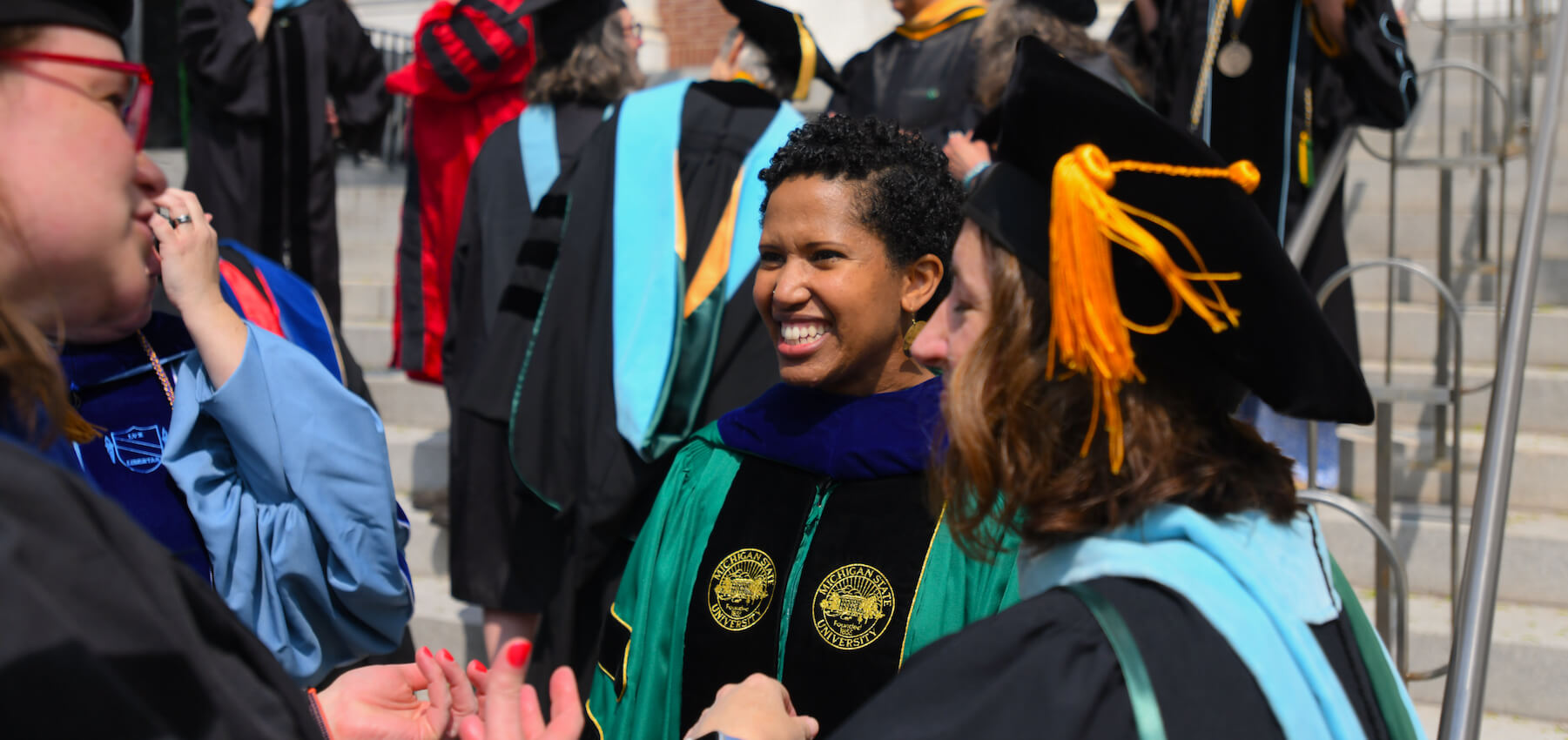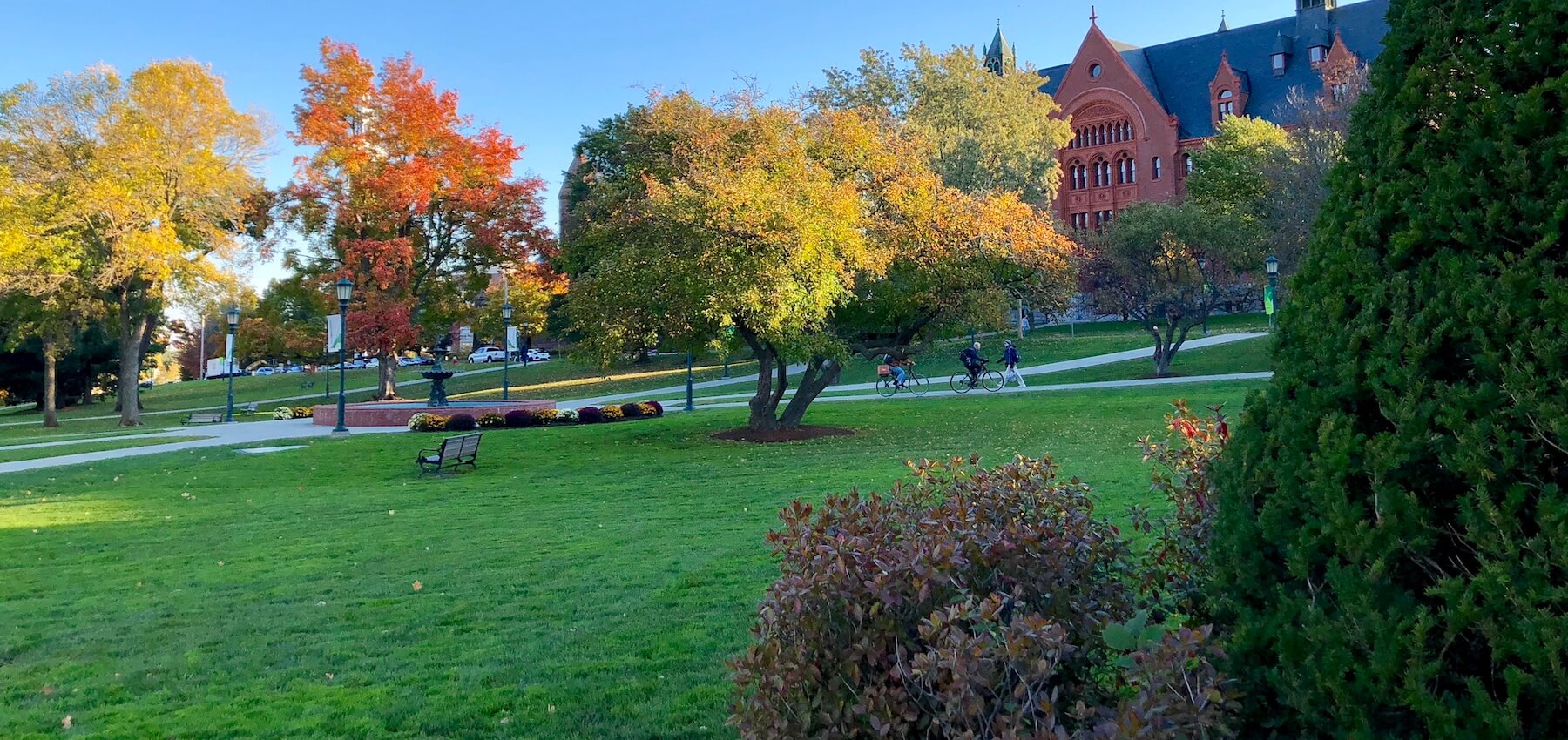Program Overview
Our rigorous high-quality leadership doctorate prepares outstanding leaders in Vermont’s K-12 schools, districts, non-profits, and social service organizations.
We are excited to announce our newly revised and reinvigorated 3-Year+ Ed.D. program! Core courses and electives are offered during the summer, fall, and spring. New cohorts begin in July every year. Our low-residency program. is primarily online with synchronous evening classes aligned to the needs of the greater Vermont community.
Although designed to be completed in three years plus one extra summer semester (10 semesters total), you have up to seven years to complete the program.

Mission and Purpose
The Ed.D. is an applied research program for professionals serving in educational leadership positions in schools, colleges, policy arenas, non-profits and social service organizations.
We strive to produce leaders who can construct and apply knowledge to make a positive difference in the lives of children, youth, individuals, families and communities through promoting excellence in a number of areas, including:
- Leadership and change strategies in and across organizations
- Development of learning organizations in response to social issues
- Design, implementation and analysis of applied research in education
- Interpretation and application of research
- Understanding of broad social issues, policies and critical perspectives of social justice, equity, and diversity
- Meeting the needs of students with learning challenges and disabilities and their families
- Analysis of policy and fiscal management in education and human services
- Implementation of policies and practices that promote equity and social justice, collaboration and cultural awareness and responsiveness
Cohort Model
Students enjoy and benefit from our cohort approach to learning. We believe that a cohort approach for adult learners fosters a spirit of community, maintains commitment, and leads to higher completion rates as compared to other approaches to doctoral studies.

Each year, newly admitted and enrolled students form a cohort. Each cohort proceeds through program together, enrolling in all required core courses. Program faculty will assist each cohort to develop into an effective learning community wherein students challenge and support one another.
The composition of the cohort represents a variety of specialized interests including PreK-12 education, higher education, non-profits, and social services. Through knowledge acquisition, research, spirited dialogue, and collaboration, students form lifelong professional relationships that often span decades.

"Equity and social justice drive my personal purpose and the purpose of our agency's work with constituent school systems. I strive to be a leader who can make a difference across our public PreK-12 educational system. My bi-directional professional and academic experiences helped me make direct connections between research, theory, and practice."
– Lori Dolezal, Ed.D.
Funding and Scholarships
Faculty
Visit our doctoral faculty profiles to learn about their internationally recognized teaching, research and service collaborations.
How to Apply
The Admissions section/tab of this page provides specific guidance on the application process.
Contact Us
- Email: edd@uvm.edu
- Phone: (802) 656-2936
- Submit the inquiry form below.
You are also welcome to reach out to our Office of Graduate Student and Program Services for help.

